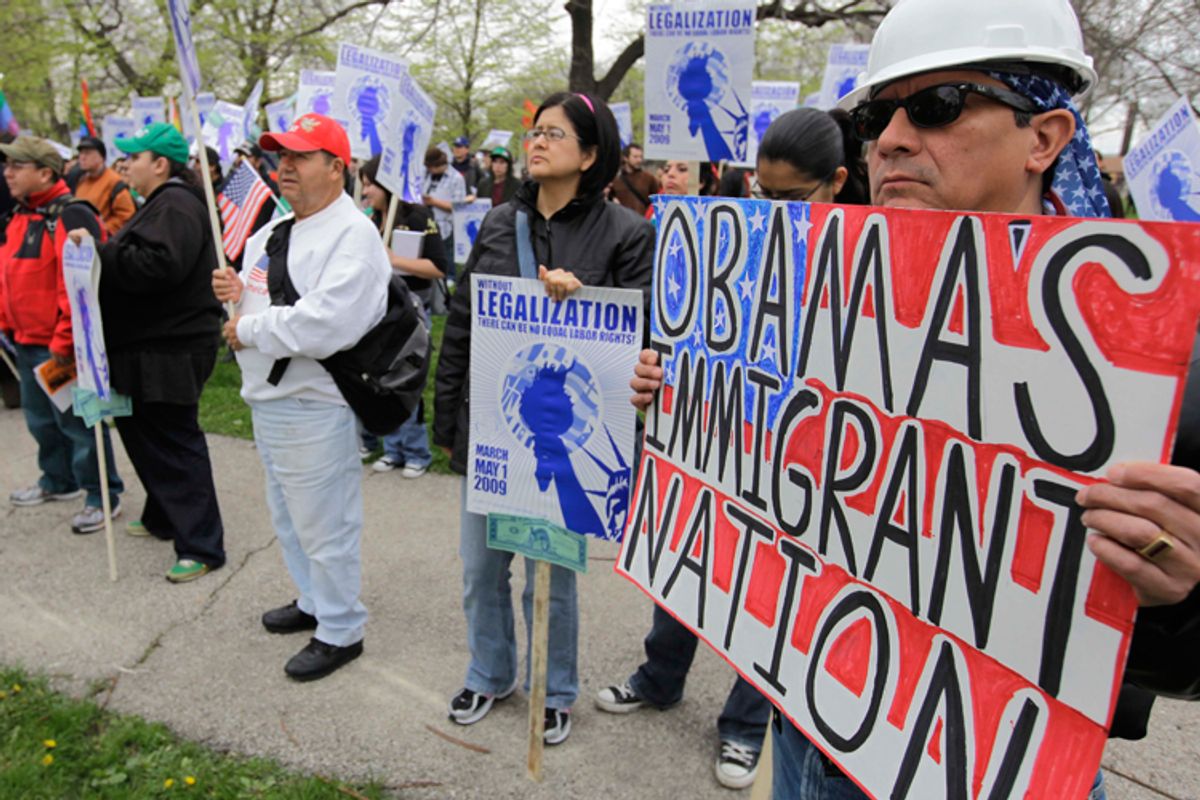Readers know I’m a supporter of immigration reform for many reasons, some of which go beyond economics into the realm of America as a welcoming country for those seeking opportunities. There’s no doubt in my mind that both my own life and that of our nation has been enriched by those who have left their homes to come to America in search of a better life.
But when we defend reform, I think we have a responsibility to stick to the facts as best we can, and I thought this piece went far beyond that threshold, particularly in claiming a shortage of low-wage workers (h/t: KR in comments):
In 1950, according to the Census Bureau, 56% of U.S. workers were high-school dropouts. Today, the figure is less than 5%.
The result is that the pool of people available to fill low-skilled jobs has shrunk dramatically.
The argument that we have a shortage of high-skilled workers in this country is dicey, but there’s a case to be made (a weak case, but that’s a different discussion). But I know of no credible arguments that we have a shortage of low-skilled workers (obviously, we’re not talking about right now, when shortages are clearly on the demand side–not enough job slots). If their wage and employment trends over the past thirty years doesn’t convince you that there’s no supply shortage in the low-wage sector (here’s the wage evidence; for jobs evidence, see the unemployment rates of the least skilled/educated—it’s consistently way above the average), then you’re playing with a very different set of cards than the rest of us.
These facts have led some to worry—reasonably—about the impact of immigration reform on the wages of less advantaged domestic workers. That’s been carefully examined and here, in contrast the illogic of the WSJ piece, is what the research shows:
–Most contemporary research finds that immigrants don’t place significant downward pressure on the wages of domestic workers because they’re more often complements than substitutes. But, and here’s where the WSJ is especially off, when they are substitutes (i.e., domestic workers or recent immigrants with low skills) the wage effects from immigrant competition are significant and negative.
–We have historically absorbed large immigrant flows in ways that have been positive for them and for the economy. First, the flows are small relative to the size of the overall labor market, and second, demand curves also move out. IE, an exceptional period to the negative wage trends for low-wage workers was the latter 1990s, when immigrant flows were very strong (and welfare reform was also driving up the supply of low-wage work), yet demand for low-wage work grew faster than supply.
–Bringing undocumented workers who are already here “out of the shadows” does not push out the labor supply curve–they’re already here–and can only help dampen unfair competition.
In the end, as I stressed before on these pages, I think much of what’s in the Senate plan on low-wage immigration makes sense (W-visas—see previous link). The fact that this part of the bill is supported by folks like EPI, an institution with tremendous credibility on these low-wage issues, former Labor Sec’y Ray Marshall, who understands both the research and the on-the-ground reality of low-wage competition, and the AFL-CIO also should lead one to believe we’ve got the balance generally right on this.
Of course, then there’s the House…



Shares